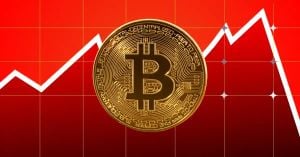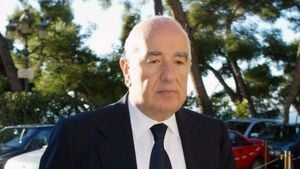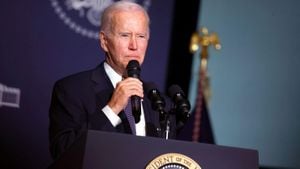ISRAEL — Escalation of violence marked the recent weeks, with the Israeli army intensifying its operations across the occupied West Bank, prompting alarm from international observers and discussions among global leaders about the crises at hand.
On February 24, 2025, reports emerged of the Israeli army staging several raids, particularly around the town of Burqin, southwest of Jenin. Eyewitness accounts describe bulldozers accompanying army forces, leading to the destruction of infrastructure and the search of several homes. The operations have drawn criticism from UN Secretary-General Antonio Guterres, who noted the alarming increase of military activities and emphasized the necessity for all parties involved to seek peace during these turbulent times.
Meanwhile, U.S. President Donald Trump and French President Emmanuel Macron convened to discuss their strategic partnership concerning the embattled nation of Ukraine. The leaders addressed the sharing of responsibilities for the peace effort, with Trump stating, “I’m pleased President Macron agrees with me on many of the most important issues,” during their closed-door meeting at the White House. Their discussion emphasizes the need for Europe to take central leadership roles alongside the U.S. in ensuring lasting security for Ukraine.
Further complicity arose when the UN Security Council passed its own resolution on February 24, calling for a “swift end” to the conflict. The U.S.-drafted measure garnered 10 votes, though five countries, including Greece and France, abstained, highlighting divisions on the council. Although the resolution reasserted the UN's commitment to peace and security, it did not openly acknowledge Russia's actions since the war began, raising questions about its effectiveness.
Israel has also shown intentions to shift focus toward Gaza. Israeli Finance Minister Bezalel Smotrich voiced the military’s readiness to occupy the region, indicating coordination with Trump’s administration, asserting, “Hezbollah is now at its lowest level,” during his comments to the Religious Zionist Party. This remark signifies the underlying tensions and shifting strategies surrounding stability in the region, paired with the worrying development around hostages held by Hamas.
Canada's actions against China on February 24, 2025, where sanctions targeted 76 individuals accused of providing dual-use goods to Russia, also drew strong rebuke from the Chinese government, which labeled the measures as “unjustified and preposterous.” Lin Jian, representing China’s Foreign Ministry, emphasized their commitment to uphold international cooperation and human rights, insisting the move was baseless under international law. Alongside these sanctions, discussions continued over the need for fairness and justice within the international community, as China’s foreign minister articulated concerns over Western double standards.
Coupled with economic discussions, Trump expresses intentions to meet Ukrainian President Volodymyr Zelenskyy to finalize arrangements concerning resource sharing. The complexity of these negotiations emphasizes increasing U.S. interests intertwined with Ukraine's recovery and resource management.
Back on the Israeli front, reports indicate over 365 Palestinians have been arrested since January 21 due to increased military actions, underlining the humanitarian crisis spiraling through the region. The plight of the Palestinian people remains at the forefront, as international voices call for the recognition of their rights amid rising tensions.
While the UN resolution seeks to incline nations toward peace, experts argue about the efficacy of such measures where vast geopolitical interests intertwine with national sovereignty. The EU’s foreign policy chief also reiterated, “The only viable solution to the Israeli-Palestinian conflict is…” indicating consensus on the necessity of dialogue amid the rising challenges.
All these narratives grow increasingly convoluted, emphasizing the urgent need for collaborative efforts to sustain peace across conflict-ridden regions. Global leaders, including Guterres, have reiterated the significance of immediate action toward resolving such disputes to avoid greater calamities.
Overall, the development of these discussions reflects a push toward addressing the pressing issues of militarism, territorial integrity, and fundamental human rights around the globe. The growing uncertainty surrounding various geopolitical dynamics continues to keep international relations on high alert, with anxieties over humanitarian needs urging prompt and effective actions from global institutions.
Clearly, the world watches as these various narratives continue to shape the battlefield of peace and security, where actions taken today will define the scope of tomorrow’s global political climate.



